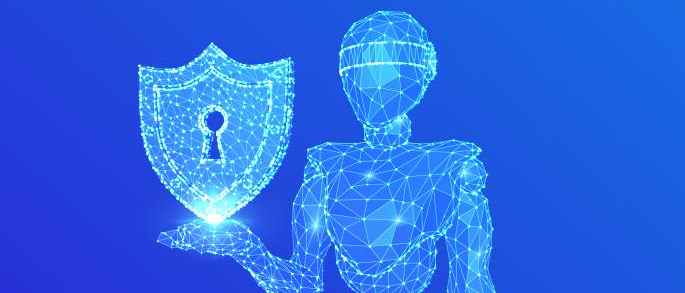Artificial intelligence (AI) is increasingly hitting the headlines, most notably with the launch of creative tools such as ChatGPT and Dall-E 2. This rapid evolution of AI is impacting many aspects of modern life, and businesses must now consider where and how to use these tools. Specifically, I am interested in the ever-growing threat of cybersecurity and what opportunities AI can offer to tackle issues in this arena.

Some of The Benefits of AI In Cybersecurity
Eases The Pressure on The Workforce and Avoids Human Error
According to a Positive Technologies study, foreign attackers may break security barriers and access local network data in 93% of all hacking situations.
As the amount of cybercrime rises, businesses must employ all available methods to protect themselves from these assaults. The obvious approach has always been to recruit more people. Nevertheless, empowering current IT security specialists with artificial intelligence technologies might alleviate the pressure on this vital but overworked personnel while increasing productivity and improving working conditions.
IBM’s cyber security intelligence index report, published in 2021, found that “human error was a major cause of 95% of all breaches”. The ability to collect and analyze data through AI enables companies to reorient security personnel to tasks requiring highly qualified human intervention.
Able To Utilize Huge Amounts of Data
It is critical that cyber-attack responses are quick and efficient in order to secure organizations’ sensitive data. It takes time to use human workers to monitor massive volumes of data and respond to possible threats in real-time.
AI can accomplish this rapidly and exhaustively, combing through massive volumes of data and spotting risks in what appears to be normal and everyday behavior. Microsoft’s Cyber Signals, for example, “analyzes 24 trillion security signals, 40 nation-state groups, and 140 hacker groups.
“Whether you use human personnel or AI, this process of sorting through data inevitably leads to false positives. But without AI, an even greater amount of manpower is required to investigate and eliminate them. Your resources can be far more effectively deployed when AI can help take the pressure off.
And because AI learns over time as it gathers more data, this lends itself to better identification and examination of false positives. The more data it collects, the better the software can analyze patterns and identify unusual practices.
These patterns are then banked, and this knowledge helps locate threats in the future, blocking potential breaches. This scope for continual self-learning makes it more difficult for hackers to succeed.
Identifies Possible Vulnerabilities Around the Clock
Hackers do not observe conventional business hours, therefore businesses cannot count on breaches occurring during the working day. Given the worldwide nature of modern business, they might be launching assaults from different time zones.
I do not believe that employing workers overnight in shifts to monitor cyber security is a cost-effective use of firm resources and could not be sustained in the long run without major investment.
However, AI can protect businesses’ sensitive data 24/7 without tiring, identifying threats as they occur and not putting them off until the start of the next working day when it may be too late.
Using AI to strengthen security also enables software to identify weaknesses before a breach occurs. Predictive models mean AI can highlight potential weak spots in security. By learning what is “model behavior,” this type of software can quickly and efficiently spot anomalies—picking up on phishing scams and malware, for example.
Potential Drawbacks of AI In Cybersecurity
While the benefits of using AI in cybersecurity are obvious, it is critical that businesses do not consider it as a total solution to the security problem.
It is not enough to install AI software and trust that the threat has been eliminated. Cybercrime is continually growing in an attempt to outwit security, resulting in a plethora of new dangers every day, with hackers constantly refining their malware and viruses.
AI software is effective at detecting anomalous behavior, but it is up to experienced personnel to use this intelligence to focus their own efforts on combating cybercrime.
AI Struggles with Smaller Amounts of Data
AI learns and adapts by analyzing large amounts of data to detect patterns and anomalies. Of course, this is not an obstacle to companies managing the flows and flows of huge amounts of data. However, companies with smaller customer bases tend to have less data to work with. AI software is not so effective in detecting unusual activity when there is less information to learn.
AI And Human Intervention Should Go Hand In Hand
AI software is not foolproof, and neither are humans. What is essential is to build a holistic approach, using both human analysts and AI software to complement each other. Delegating time-consuming activities posed by low-level security risks to software leaves skilled personnel free to focus on aspects of security that require a human touch. A successful relationship between AI and skilled staff can make a huge difference in guarding against cybercrime.